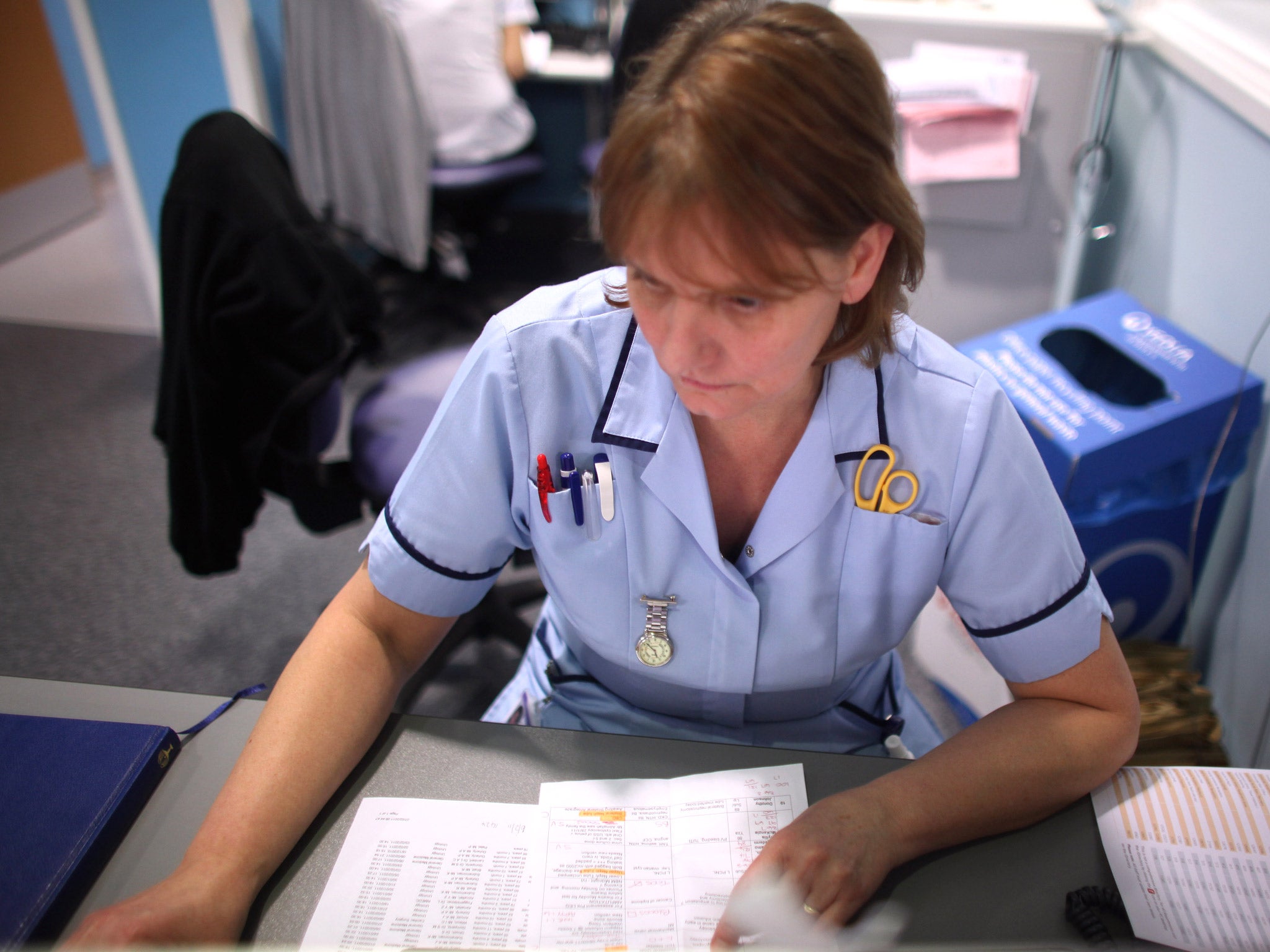Victory for privacy as NHS database is delayed
Collection of confidential medical records put on hold after backlash. Critics feared personal information would be vulnerable to hackers

Your support helps us to tell the story
From reproductive rights to climate change to Big Tech, The Independent is on the ground when the story is developing. Whether it's investigating the financials of Elon Musk's pro-Trump PAC or producing our latest documentary, 'The A Word', which shines a light on the American women fighting for reproductive rights, we know how important it is to parse out the facts from the messaging.
At such a critical moment in US history, we need reporters on the ground. Your donation allows us to keep sending journalists to speak to both sides of the story.
The Independent is trusted by Americans across the entire political spectrum. And unlike many other quality news outlets, we choose not to lock Americans out of our reporting and analysis with paywalls. We believe quality journalism should be available to everyone, paid for by those who can afford it.
Your support makes all the difference.Controversial plans to trawl patient records from every GP surgery in England have been put on hold, amid concerns from doctors and ministers that the public have not been properly informed about how their private data will be used. The care.data programme, which was scheduled to begin collecting the confidential information from GPs in April, will now be delayed until the autumn, NHS England has announced.
The pause will allow the NHS more time to inform people about “ the benefits of using the information, what safeguards are in place, and how people can opt out if they choose to,” officials said.
The Department of Health has grown increasingly concerned in recent weeks that NHS England has not sufficiently reassured the public – nor the medical profession – about how the care.data programme would benefit patients. Critics have also warned that the private data, which will be held centrally in a “pseudonymised” form, could be vulnerable to hackers who would be able to identify individual patients.
The data, with identifiable features removed, will also be routinely available to third parties, including private healthcare companies and privacy campaigners have warned that patients will have no way of knowing who is handling their data.
Family doctors have also been hostile to the data sweep, warning that it would threaten the doctor-patient relationship if the public had concerns about the confidentiality of information shared with their GP. Some doctors threatened to opt-out all their patients.
Although leading groups, including the British Medical Association and the Royal College of General Practitioners (RCGP) initially backed the scheme, both have broken ranks within the past week saying that while they back the principle, NHS England needed to do more to guarantee “the support and the consent of the public”.
Concerns persisted despite a publicity campaign in which information leaflets were delivered to 26 million households in England in January. Polls suggested that fewer than one in three adults recall receiving the leaflets, which were derided as “junk mail” by critics. Despite containing important information, the leaflets were not addressed to individuals and did not contain an opt-out form.
Today, the campaign group 38 Degrees met with NHS England officials following a poll which found that 120,000 of their members backed a campaign for a mass opt-out of the scheme.
Tim Kelsey, NHS England’s national director for patients and information who has spearheaded care.data, said the NHS was “ determined to listen”.
He added: “We have been told very clearly that patients need more time to learn about the benefits of sharing information and their right to object to their information being shared... [and] that is why we are extending the public awareness campaign by an extra six months.”
Most experts agree that collecting vast amounts of patient information in a central database is sound in principle. NHS England claims it will allow researchers to better understand causes and outcomes of illness, improve knowledge of drug effectiveness and, so, improve patient care. But the failure to communicate the plan to patients, or reassure doctors and campaigners on questions of security has fed growing disquiet.
A Department of Health spokesman said ministers support the decision to delay the launch. “This is a vital programme which will bring real benefits to patients. But concerns over how this has been explained to patients have been raised which must be addressed,” he said.
Dr Chaand Nagpaul, chair of the BMA’s GP committee, said it was “ only right” that the public “fully understand what the proposals mean to them and what their rights are”.
“With just weeks to go until the uploading of patient data was scheduled to begin, it was clear from GPs on the ground that patients remain inadequately informed,” he said.
Medical data expert Dr Julia Hippisley-Cox, a leading critic of the scheme, told The Independent the delay would give the NHS “time to get this right”. She added: “We now have an opportunity for a careful and proportionate response to the concerns raised.”
Join our commenting forum
Join thought-provoking conversations, follow other Independent readers and see their replies
Comments